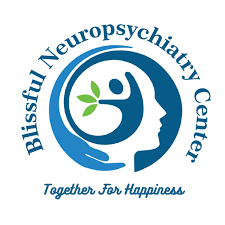OCD Spectrum Disorder - Neurological and Mental Health Issues
OCD spectrum disorder is a common, chronic (long-lasting), and distressing problem. Because of it, many people develop problems like anxiety and depression. It affects a person’s professional life and daily routine. When the problem worsens, patients feel, “This is too much, I need to see someone,” and eventually reach the hospital.
Among individuals with this problem, those with avoidant, dependent, or histrionic personality [traits/disorders] have a 40% chance of developing OCD, and those with obsessive-compulsive traits have a 5-15% chance. These individuals may also experience panic disorder, specific phobia, tic disorder, and substance addiction.
Obsession refers to persistent, intrusive, and unwanted ideas, impulses, thoughts, or images that are recognized as unnecessary and meaningless, and which cause stress/tension. For example, “My hands are dirty,” or “Oh, I forgot to turn off the gas.”
And the individual tries to ignore or suppress these thoughts.
Compulsion refers to repetitive behaviors, habits, or mental acts that are performed in an attempt to reduce the anxiety caused by obsessions. Its main function is to alleviate the fear caused by obsessions. For example, washing hands to remove the thought of dirt, checking to remove doubt, etc.
Example of OCD:
Story: A new friend came to the room of a student (a person with OCD), but the student wasn’t in the room, so the friend sat on his bed and waited. The new friend was surprised to see his room. The room was very clean and neatly arranged. The student (with OCD) returned, and the new friend gave him a book and went to his own room. After that, the student (with OCD) removed the bedsheet and washed it thoroughly.
Because the new friend had shaken his hand, he also washed his hands, but still wasn’t satisfied. Then he took a full body shower, removed all items from his room, washed the room with soap and water, and only then sat peacefully on his bed. During this time, his friends had called him to eat, but because his mind was disturbed, he didn’t go to eat and continued cleaning his body and room.
Story 2: An 18-19-year-old young woman from a hilly region came to my hospital and reported symptoms of depression, stating she didn’t want to live and felt like committing suicide. When I asked the reason, she was reluctant to say, so we planned for counseling. In counseling, she shared her story. She felt the urge to have physical relations with any male, and she didn’t know the reason why. It could be someone from a neighboring house, a male family member, or anyone, and as soon as she saw a male, it became extremely difficult for her to control herself. She couldn’t even tell her mother or sister about this.
The client felt immense guilt and self-blame, thinking, “What sinful thoughts am I having?” and would constantly scold and berate herself. After tireless efforts, when these thoughts didn’t stop, she fell into depression and planned to commit suicide. While she was contemplating this, her friend became suspicious and brought her to me.
These sexual thoughts were obsessions, and her inability to suppress them led to anxiety problems, which later progressed to depression and suicidal ideation. Therefore, some problems may appear like depression but could actually be other underlying issues. Later, the patient got better, is now off medication, got married, and is living happily.




